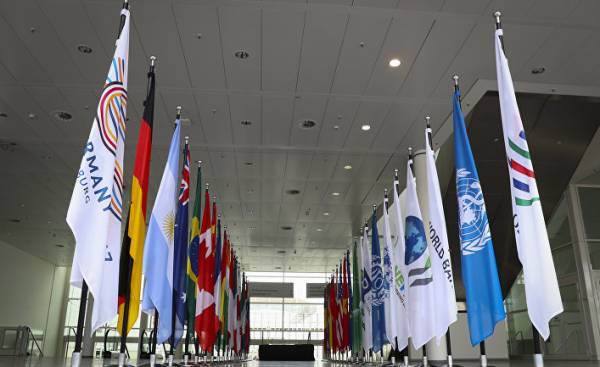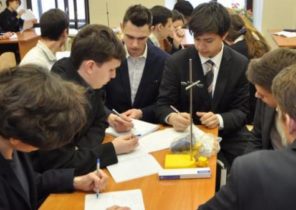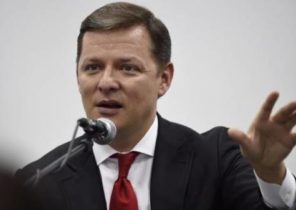
On the eve of my trip to Germany to participate in the next summit of the group of twenty would like to share some thoughts on cooperation within the framework of “twenty”. In recent years the Group of twenty has established itself as a popular mechanism for coordination of interests and positions of the leading economies in the world. Coordinated action of the “twenty” contributed to the adoption of the necessary measures that would not only allow to overcome consequences of the financial crisis, but also laid the Foundation for the improvement of the global governance system, which is due to a number of reasons, is now experiencing not the best times. And, equally important, together we have been able thereby to resolve many long-standing problems.
So, we in Russia highly appreciate the practical steps to counter the erosion of tax base and transfer of profits by corporations in the so-called “tax havens”. From this practice affects all of the economy. Furthermore, such irresponsible behavior has a negative impact on the living standards of millions of people, leads to large social costs.
Other achievements of the “twenty” refers to the practical implementation of agreements in the sphere of financial regulation reform. We are talking in particular about the special regulation of the banks whose failure would be undesirable and risky because of the size of their business. For the first time in the history of the beginning of the cooperation bodies for the supervision of the operations of the participants of the nonbank financial sector. Of great importance are the decisions on the principles of preventing and overcoming crises in the banking sector, on the organization of work of agencies of insurance of contributions, and more. A major step forward was also, needless to say, the establishment of a Council for financial stability. Thus, it became possible to carry out the efforts to reform regulation of the financial market systematically and in accordance with the terms and make this Board an important partner of the IMF, when it comes to regular risk assessments. The creation of this Council also contributed to the establishment of similar structures at the national level.
Compromises as brand name
The effectiveness of the “twenty” as a tool of global governance is not reduced even in the conditions of growing geopolitical risks and uncertainties. This is largely due to the exceptional liability which the respective countries presidents come to the execution of its mission. I say this, drawing on our own experience, since Russia chaired the “Group of twenty” in 2013 and received strong support from all partners.
The success of this Association is respect for the point of view of each participant, regardless of the size of the economy and in the international financial system. Constructive discussion and compromise became a sort of trademark of “twenty,” the unwritten norm in the relations that enforces and current country President — Germany.
The forthcoming meeting of leaders of the group of twenty in Hamburg is a good opportunity to discuss the most pressing issues on the global agenda. We share the priorities of the German presidency and is willing to work for their advancement. Of course, while maintaining continuity of previous decisions.
We welcome the extension of the range of topics covered in the “Group of twenty”. I mean the issues of sustainable development, climate change, counter-terrorism and corruption, health, migration and refugees. It is extremely important from our point of view, and that, thanks to the Chinese presidency in 2016, and this year the efforts of the German partners, the G20 began to pay more attention to the digital economy as one of the sources of growth and the new factor of global governance.
We are facing real challenges. The previous economic model is almost exhausted, protectionism becomes the norm, and its become a disguised form of unilateral politically motivated sanctions in trade and investment and particularly technology promotion. In our view, such sanctions are not only futile, but contrary to the promoted “twenty” principles of cooperation in the interests of all countries of the world.
Russia fulfills its obligations under the climate
I’m sure that only open based on uniform norms and standards trade relations and stimulate the growth of the global economy, contributing to the progressive development of bilateral relations. As is laid down in the framework of the world trade organization.
“Twenty” is of the subject engaged in such a significant problem as global climate change. Human activity greatly increases the load on the planet’s ecosystem, making it difficult to achieve sustainable development goals. Russia is one of the leaders in the international climate process — exceeded its commitments under the Kyoto Protocol. Thus, we largely compensated for rising emissions in other countries and regions of the world. Signed in April last year, the Paris agreement is considered as a reliable international legal framework for long-term climate regulation and are committed to fully contribute to its implementation.
In recent years the “Group of twenty” pays serious attention to the issues of migration. According to the UN, in 2017, migrant workers were transferred to developing countries exceeding $ 500 billion. This is three times more funds as official aid for development, and foreign direct investment. Within the G20 there is an active study of the issues of integration of migrants into the labour markets of host countries, their cultural adaptation and social protection. In addition, this year managed to formulate solutions that open the possibility of resolving the problems of internally displaced persons. They are based on strengthening regional and global stability, as well as the growth of the economies of States that are “generated” unprecedented flow of refugees.
Not to replace freedom with tyranny
A new theme within the “twenty” — information security. Russia consistently stands for freedom of access to information and communications technologies, including the Internet. We attach great importance to the protection of human rights in the information space. While in the digital environment, as in any other, freedom in any case should not be replaced by permissiveness and impunity. This leads to rampant cyber criminals, hacker groups, all those who, using advanced technologies, encroaching on the privacy of citizens or the sovereignty of States. Russia, one of the first signifying the danger of this call, not the first year promotes the idea of a universal conclusion of international agreements in the framework of the UN, designed to counteract these negative phenomena. We count on a positive, interested reaction from other countries. In the agenda of the summit is also to make issues of digital literacy — a key element of consumer protection in e-Commerce.
It should be pointed out that the opportunities offered by the digital economy, transition to new industrial and technological at the same time increase the gap in development between rich and poor countries exacerbate the problem of inequality between different social strata. Therefore, the focus of our efforts must be the person, his interests and concerns. I think this is the most important priority in the activities of the “group of twenty”.
It is obvious that “twenty” can make a significant contribution to strengthening the stability of the world economy and its harmonious development. Only by pooling our efforts, we can overcome the current imbalances and to ensure sustainable growth and to develop equitable trade rules and fair competition, to reduce poverty, solve pressing social problems.
The Russian delegation will take active part in the summit in Hamburg, which I’m sure will bring results. I wish our German colleagues the best in his organization. And, of course, together with partners in the “group of twenty” we connect to the practical implementation of the agreements adopted following the meeting.
In conclusion, I would like to wish the readers of the newspaper Handelsblatt, all German citizens health and well-being.







